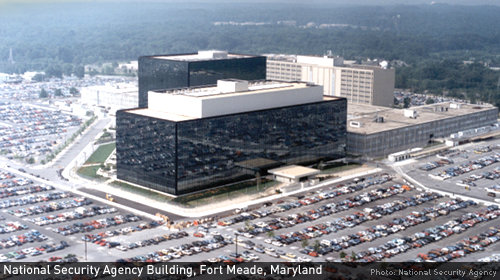
If I can't report a story without keeping a source safe, I'm not going to report a story.
– Jonathan S. Landay, Senior national security and intelligence correspondent, McClatchy Newspapers
It turns out that surveillance affects more than just privacy.
We know the government collects massive amounts of data about us, including bulk domestic calling records in the millions, many of our international emails and calls, and much more. Those programs have obvious privacy implications, but more than a year since the first Edward Snowden disclosure, we need to focus on the other democratic pillars that government spying has imperiled.
A new report, produced jointly by the ACLU and Human Rights Watch, shows that large-scale surveillance by the U.S. government is undermining the work of journalists and lawyers. Many leading journalists covering national security, law enforcement, and intelligence have found sources and information increasingly hard to come by. Surveillance is compounding a host of other challenges faced by journalists lately, like a significant spike in the prosecution of their sources and new government initiatives to minimize even minor leaks.
Many of the journalists I interviewed for the report described struggling to find ways to protect their data and communications, adopting new and sometimes elaborate techniques to do so. Encryption? Check. Air-gapped computers? Check. And many of these journalists are now using "burner phones," going back to payphones, or even trying to contrive ways to bump into sources in person. These techniques can take extra time. Combined with sources' growing reluctance to speak – even about unclassified matters that the government has no business protecting in the first place – that means reporters are producing stories at a slower rate.
The result? We have less information about our own government.


%3Ciframe%20allowfullscreen%3D%22%22%20frameborder%3D%220%22%20height%3D%22281%22%20src%3D%22%2F%2Fwww.youtube.com%2Fembed%2FbloPC_BHCDQ%3Fautoplay%3D1%26autoplay%3D1%26version%3D3%22%20width%3D%22500%22%3E%3C%2Fiframe%3E
Privacy statement. This embed will serve content from youtube.com.
Lawyers need to modify their practices, as well. The Snowden revelations have made it clear that attorneys need to go to new lengths to maintain their clients' confidences. Increasing challenges in communicating securely make it harder for them to build trust with their clients and to develop legal strategies with clients and co-counsel. A number of lawyers have begun adopting techniques similar to those used by journalists.
Both journalists and lawyers also emphasized that taking such elaborate steps to do their jobs makes them feel like they're doing something wrong. As one lawyer put it, "I'll be damned if I'm going to start acting like a drug dealer in order to protect my client's confidentiality."
That feeling is understandable, and it is a profound problem that so many others shared it, given that journalists and lawyers play such integral roles in our democracy. We depend on the press to tell us what our government is doing, and without that information, it is much harder to hold our government to account when it missteps or overreaches. In the age of drones, mass surveillance, and indefinite detention, we need coverage of national security and intelligence as badly as ever.
The same goes for lawyers – especially defense lawyers. Confidentiality and attorney-client trust are crucial for effective representation, cornerstones of fairness in the justice system.
We know that mass surveillance can obliterate privacy. But more than that is at stake. Without privacy, essential democratic processes are in danger.
Learn more about government surveillance and other civil liberties issues: Sign up for breaking news alerts, follow us on Twitter, and like us on Facebook.
Stay informed
Sign up to be the first to hear about how to take action.
By completing this form, I agree to receive occasional emails per the terms of the ACLU's privacy statement.
By completing this form, I agree to receive occasional emails per the terms of the ACLU's privacy statement.

